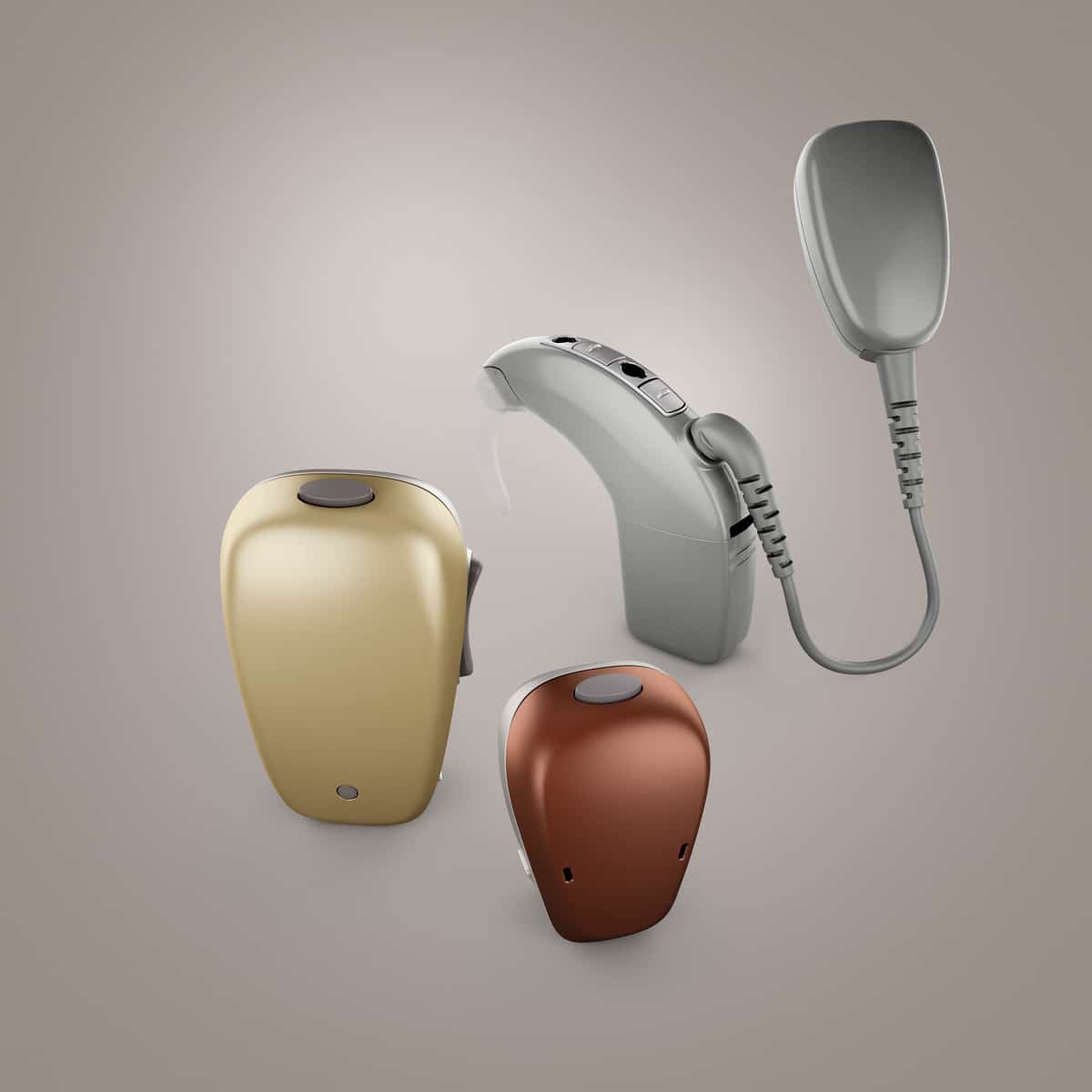Single sided deafness (SSD), sometimes referred to as unilateral hearing loss, is a condition in which an individual has normal hearing in one ear and unaidable hearing loss in the other ear. An unaidable hearing loss is defined as hearing loss that will not benefit from traditional amplification. SSD is diagnosed in approximately 60,000 people in the United States each year.
Causes of Single Sided Deafness (SSD)
SSD can be caused by a variety of factors.
- Acoustic neuroma
- A benign, slow growing tumor that can push against the auditory nerve and affect the ability to hear properly in one ear.
- Sudden hearing loss
- A viral infection that causes inflammation in the cochlea, resulting in damage to either the hearing hair cells or stria vascularis and a rapid onset of hearing loss.
- Other factors may be due to Meniere’s disease, head trauma, genetic disorders, labyrinthitis, etc.
Treatments for Single Sided Deafness (SSD)
With medical clearance, the options that exist for helping patients manage their unilateral hearing include:
- Contralateral routing of signal (CROS) system
- A CROS is a microphone that is placed on the side with no hearing or unuseable hearing, while a traditional hearing device is placed on the patient’s “good” or normal ear.
- The CROS picks up sound and then transmits them over to the patient’s “good” or normal ear, essentially re-routing the signal to the better hearing ear.
- This pairing is called a BICROS for patients with some degree of hearing loss in the “good” ear.
- Bone-anchored hearing system
- This is a surgically implanted titanium abutment with a removeable sound processor, which uses direct bone conduction to transmit sounds to the good ear.
- This particular device is helpful for patients with outer and middle ear issues because traditional amplification is not as effective.
Please call Massachusetts Hearing Group at (978) 256-3219 or Nashua Hearing Group at (603) 594-3024 for more information or to schedule an appointment.
